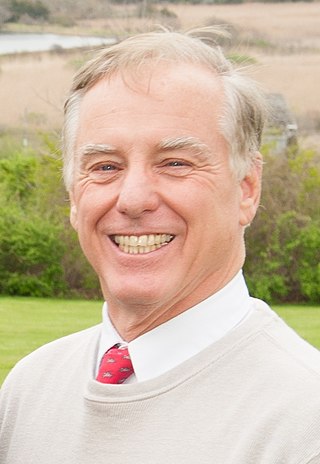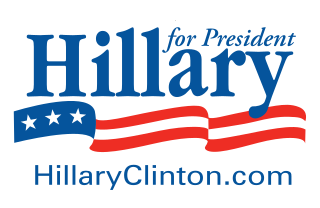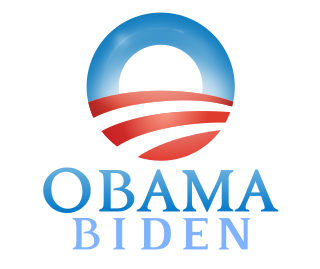In the United States, a political action committee (PAC) is a tax-exempt 527 organization that pools campaign contributions from members and donates those funds to campaigns for or against candidates, ballot initiatives, or legislation. The legal term PAC was created in pursuit of campaign finance reform in the United States. Democracies of other countries use different terms for the units of campaign spending or spending on political competition. At the U.S. federal level, an organization becomes a PAC when it receives or spends more than $1,000 for the purpose of influencing a federal election, and registers with the Federal Election Commission (FEC), according to the Federal Election Campaign Act as amended by the Bipartisan Campaign Reform Act of 2002. At the state level, an organization becomes a PAC according to the state's election laws.

Democracy for America(DFA) was a progressive political action committee headquartered in Burlington, Vermont. Founded by former Democratic National Committee Chair Howard Dean in 2004, DFA led public awareness campaigns on a variety of public policy issues, trains activists, and provided funding directly to candidates for office, until it ended operations in 2022. At its peak, the organization had dozens of local chapters and more than a million members in the United States and internationally.
Matching funds are funds that are set to be paid in proportion to funds available from other sources. Matching fund payments usually arise in situations of charity or public good. The terms cost sharing, in-kind, and matching can be used interchangeably but refer to different types of donations.

The financing of electoral campaigns in the United States happens at the federal, state, and local levels by contributions from individuals, corporations, political action committees, and sometimes the government. Campaign spending has risen steadily at least since 1990. For example, a candidate who won an election to the House of Representatives in 1990 spent on average $407,600, while the winner in 2022 spent on average $2.79 million; in the Senate, average spending for winning candidates went from $3.87 million to $26.53 million.

Howard Brush Dean III is an American physician, author, consultant, and retired politician who served as the 79th governor of Vermont from 1991 to 2003 and chair of the Democratic National Committee (DNC) from 2005 to 2009. Dean was an unsuccessful candidate for the Democratic nomination in the 2004 presidential election. Later, his implementation of the fifty-state strategy as head of the DNC is credited with the Democratic victories in the 2006 and 2008 elections. Afterward, he became a political commentator and consultant to McKenna Long & Aldridge, a law and lobbying firm.
The presidential election campaign fund checkoff appears on US income tax return forms as the question "Do you want $3 of your federal tax to go to the Presidential Election Campaign Fund?".

The 2008 presidential campaign of Hillary Rodham Clinton, then junior United States senator from New York, was announced on her website on January 20, 2007. Hillary Clinton was previously the First Lady of the United States and First Lady of Arkansas prior to her election as U.S. Senator from New York. She is also the wife of former President Bill Clinton. Clinton was the source of much media speculation since having expressed interest in being a candidate in the 2008 presidential election since at least October 2002.

On February 10, 2007, Barack Obama, then-junior United States senator from Illinois, announced his candidacy for the presidency of the United States in Springfield, Illinois. Obama announced his candidacy at the Old State Capitol building, where Abraham Lincoln had delivered his "House Divided" speech. Obama was the main challenger, along with John Edwards, to front-runner Hillary Clinton for much of 2007. He had only recently emerged as a national figure in Democratic politics, having delivered the DNC keynote address just three years prior and won his Senate election shortly thereafter.
In early 2007, Ron Paul, a congressman from Texas, announced his candidacy for the Republican Party's nomination for president of the United States in the 2008 election. Initial opinion polls during the first three quarters of 2007 showed him consistently receiving support from 3% or less of those polled. In 2008, Paul's support among Republican voters remained in the single digits, and well behind front-runner John McCain.

Julianna Smoot is an American political aide and fundraiser for the Democratic Party. She served as a Deputy Manager of Barack Obama's 2012 presidential reelection campaign, having previously served as White House Social Secretary, Deputy Assistant to the President. and Chief of Staff to United States Trade Representative Ron Kirk. Smoot previously served as a professional fundraiser for the Democratic Party. She was the national finance director for Barack Obama 2008 presidential campaign. Under her direction, the campaign raised $32.5 million during the second quarter of 2007 and by election day, more money than any campaign in American history. She was named Social Secretary after her predecessor, Desirée Rogers resigned on February 26, 2010.
In the 2008 United States presidential election, fundraising increased significantly compared to the levels achieved in previous presidential elections.
Grassroots Campaigns, Inc. is a for-profit corporation that does strategic consulting, and fund raising for humanitarian and progressive causes and political organizations. Grassroots Campaigns employs thousands of workers to generate small-donor contributions, increase visibility, and expand the membership base for a number of progressive groups, issues, and campaigns. Headquartered in Boston, Massachusetts, the company was founded in December 2003 by a small team of experienced organizers who specialized in grassroots-level political and public interest organizing with groups like the Public Interest Research Group However, since its founding, it has consistently faced accusations of anti-union activity at odds with its stated progressive roots.
Norman Yung Yuen Hsu is a convicted pyramid investment promoter who associated himself with the apparel industry. His business activities were intertwined with his role as a major fundraiser for the Democratic Party, and he gained notoriety after suspicious patterns of bundled campaign contributions were reported in 2007. Subsequently he was discovered to have been a long-time fugitive in connection with a 1992 fraud conviction. After turning himself in to California authorities in 2007 he fled the state again and was quickly recaptured.
Moneybomb is a neologism coined in 2007 to describe a grassroots fundraising effort over a brief fixed time period, usually to support a candidate for election by dramatically increasing, concentrating, and publicizing fundraising activity during a specific hour or day. The term was coined by Trevor Lyman to describe a massive coordinated online donation drive on behalf of presidential candidate Ron Paul, in which context the San Jose Mercury News described a moneybomb as being "a one-day fundraising frenzy". The effort combines traditional and Internet-based fundraising appeals focusing especially on viral advertising through online vehicles such as YouTube, Twitter, and online forums. In the case of lesser-known candidates it is also intended to generate significant free mass media coverage the candidate would otherwise not receive. Moneybombs have been used for grassroots fundraising and viral activism over the Internet by several 2008 presidential candidates in the United States. It emerged as an important grassroots tool leading up to the 2010 midterm elections and 2012 presidential election in the United States.

The 2004 presidential campaign of Howard Dean, 79th Governor of Vermont, began when he formed an exploratory committee to evaluate a presidential election campaign on May 31, 2002. Dean then formally announced his intention to compete in the 2004 Democratic primaries to seek the Democratic Party's nomination for President on June 23, 2003. Dean dropped out of the race in February 2004 after a poor showing in the Wisconsin primary.

Barack Obama, then junior United States senator from Illinois, announced his candidacy for president of the United States on February 10, 2007, in Springfield, Illinois. After winning a majority of delegates in the Democratic primaries of 2008, on August 23, leading up to the convention, the campaign announced that Senator Joe Biden of Delaware would be the vice presidential nominee. At the 2008 Democratic National Convention on August 27, Barack Obama was formally selected as the Democratic Party nominee for president of the United States in 2008. He was the first African American in history to be nominated on a major party ticket. On November 4, 2008, Obama defeated the Republican nominee, Senator John McCain of Arizona, making him the president-elect and the first African American elected president.

On April 4, 2011, Barack Obama, the 44th president of the United States, announced his candidacy for re-election as president. On September 5, 2012, he again became the nominee of the Democratic Party for the 2012 presidential election. Along with his running mate, Vice President Joe Biden, Obama was opposed in the general election by former Massachusetts Governor Mitt Romney, along with various minor candidates from other parties. The election took place on Tuesday, November 6, 2012.

The 2010 congressional elections in Pennsylvania were held on November 2, 2010. Pennsylvania had nineteen seats in the United States House of Representatives. The election was held on the same day as many other PA elections, and the same day as House of Representatives elections in other states. Party primary elections were held May 18, 2010.
Rally.org is an American social online fundraising platform for use by a wide range of individuals and organizations. It allows users to set up their own fundraising page, through which supporters can find information about their campaigns and make donations through Rally.org's proprietary payment system. The platform is best known for its use by causes including the Make A Wish Foundation and Jon Bon Jovi's Hurricane Sandy relief effort, filmmakers including the director of Buzkashi Boys, and political campaigns in the United States 2012 election cycle. In May 2012, Rally.org closed the largest Series A round of venture capital ever raised online. The company was founded in Austin, Texas, as Piryx, in 2009 by Tom Serres, Brian Upton, Jonas Lamis and Naveed Lalani.

The Hillary Victory Fund was a joint fundraising committee for Hillary for America, the Democratic National Committee (DNC), and 33 state Democratic committees. As of May 2016, the Fund had raised $61 million in donations.











